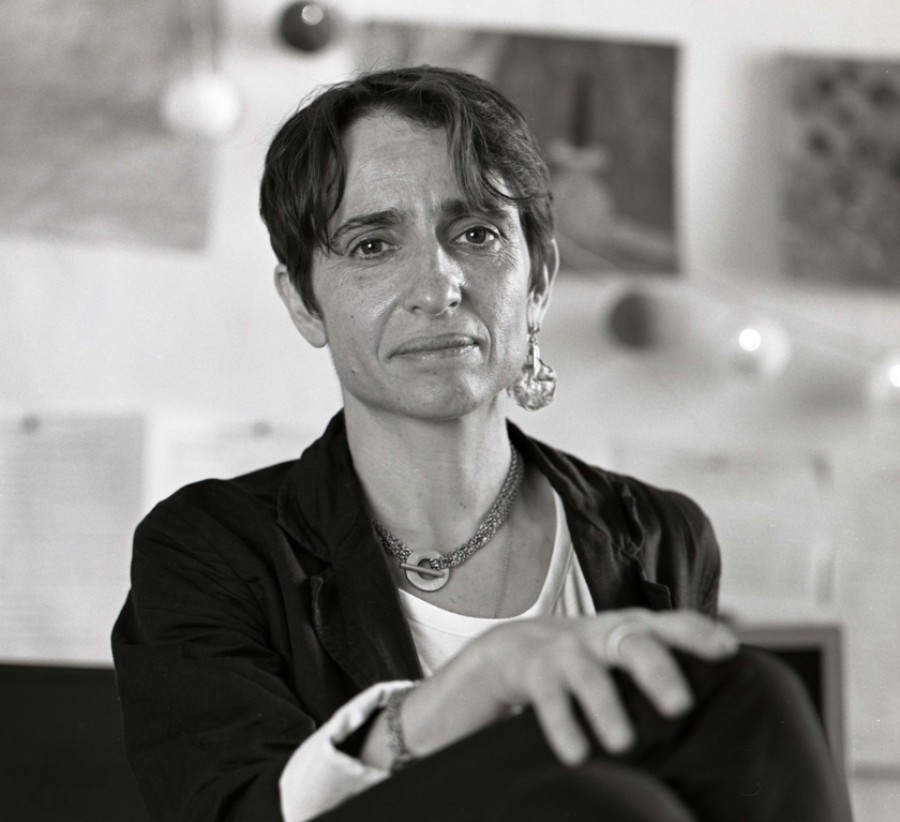Writer Masha Gessen On ‘How Totalitarianism Reclaimed Russia’
By Steve Bynum

Writer Masha Gessen On ‘How Totalitarianism Reclaimed Russia’
By Steve BynumIn the course of 30 years, Russia went from a totalitarian state to a new democracy, and then backslid into a totalitarian empire once again, said writer and journalist Masha Gessen.
“I think what happened in 2012, when Putin cracked down in the face of mass protest, was that he was cracking down as the head of a mafia state, but he was cracking down on a society that had lived through 70 years of totalitarianism,” Gessen said on Worldview. “[Citizens] have regressed into a state of low-level dread, which is typical of totalitarian societies and makes people imminently controllable.”
Gessen, author of The Man Without a Face: The Rise and Rule of Vladimir Putin and The Future Is History: How Totalitarianism Reclaimed Russia, joined Worldview host Jerome McDonnell to discuss what caused Russia’s swift slide back into totalitarianism and the state of America’s current leadership.
Here are some highlights from that conversation.
On how Russia became a totalitarian state again
Masha Gessen: I think Putin didn’t set out to build a totalitarian regime. He set out to hold onto power — and to get rich and to help his friends get rich. He basically set out to build a mafia state ruled by a clan with a patriarch in the center, and he was going to be the patriarch.
And for the first 12 years, the mafia state could exist as an an authoritarian regime, which is one where there’s a contract between the ruler and the citizens where the citizens stay home and don’t meddle in politics. They tend to their private lives and nothing is political. The country is then ruled by one person — or a small group of people — who get rich.
The difference between an authoritarian state and a totalitarian state is in what is political. In a totalitarian state, everything is political and the population is mobilized. So while an authoritarian wants people to stay home, a totalitarian wants them out in the public square rallying in support of him.
On post-Soviet Russia’s trauma
Gessen: I think sometimes it’s helpful to think of countries as people. When we know that a person has been traumatized — for example, the victim of human trafficking or grew up in an abusive family — we don’t expect that person to go out and have a happy, healthy life unless they get a lot of help and a lot of intervention. And even then, they may go and recreate a situation of abuse over and over again. We understand that, and we kind of need to understand the same thing about societies.
On Trump as a fresh leader
Gessen: He’s a teenager who’s just discovered his autonomy. And he keeps trying to shut the door of his room and say, “It’s none of your business what I do in my room and how messy it is.”
And what I find particularly disturbing about him is: You know how teenagers suddenly divorce themselves from the house? They don’t understand why they should stack the dishes because what does it have to do with them? They perceive all common spaces as other people’s spaces, and that’s very much Trump.
His desire is clear — an evident desire to destroy all agreements, whether they’re international or domestic, and all organizations based on those agreements. Whether it’s industry regulations or the Paris climate accords, what underlies all of them is the sense that everything that’s common belongs to other people. And that means that he’s destroying politics because politics is all the different ways in which we figure out how to live together.
On loyal Trump followers
Gessen: It doesn’t particularly surprise me [that people who voted for Trump are still loyal to him]. He hasn’t changed since he was on the campaign trail. He’s exactly the guy they voted for. He goes to his own rallies and talks about all the success he’s had, and his base doesn’t believe mainstream media.
But, I don’t want to talk about these people as if they’re idiots who can’t read the papers, and that if only they were better informed, they’d make better decisions. I think there’s a large number of people who voted for Trump not because they weren’t informed, but because they know perfectly well how poorly the system works for them.
They do not feel that representative democracy has done them any favors. They do not feel that they can cast a vote and that vote will improve their lot. I think their decision to vote for someone who will disrupt the system in that context is perfectly rational.
This interview has been edited for brevity and clarity. Click the “play” button to listen to the entire conversation, which was adapted for the web by producer Arionne Nettles.
